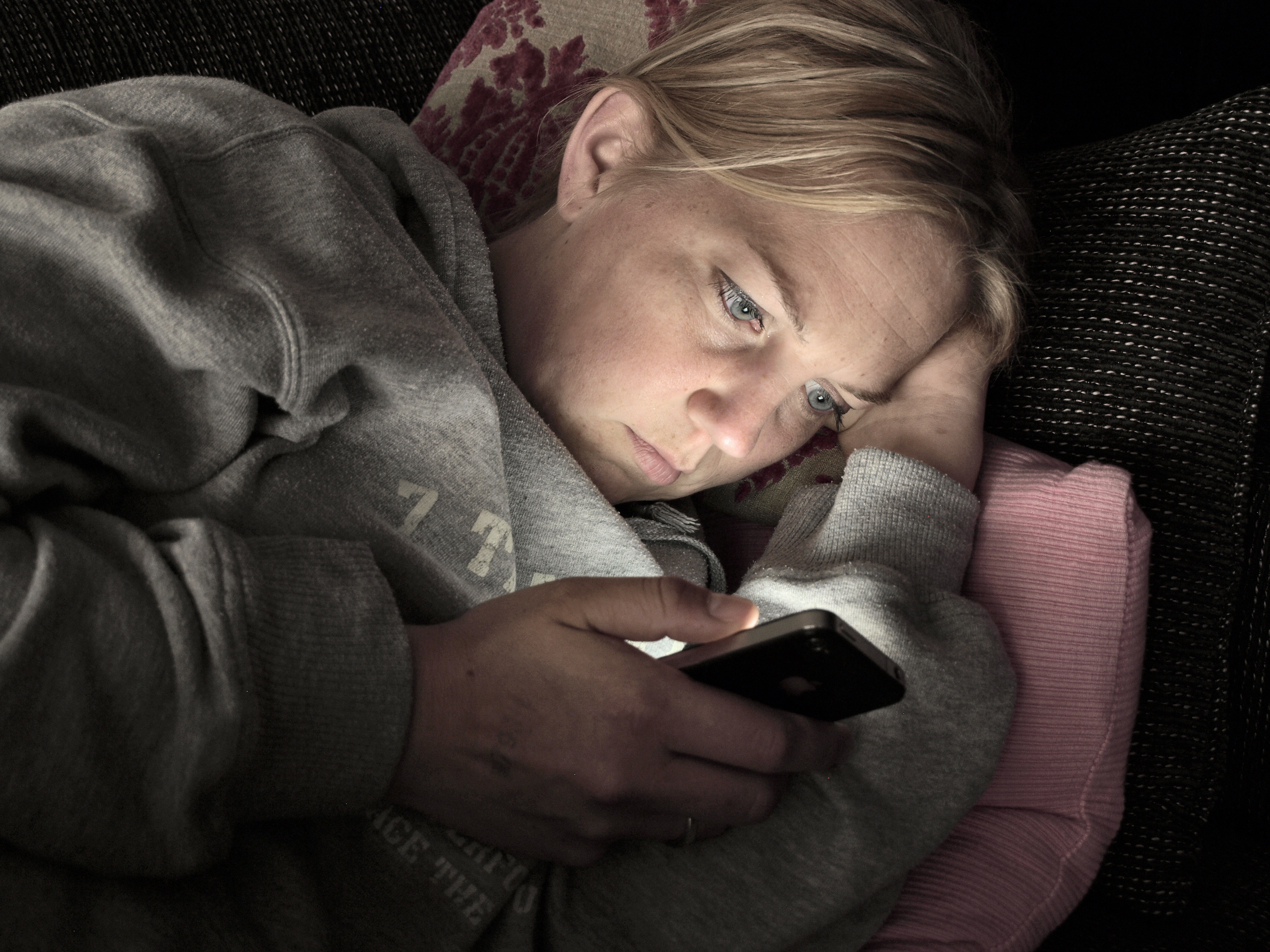If you have any technology device, you have been affected by blue light. Prolonged exposure to blue light from our every day devices (and even the lights in our home) can lead to serious issues.
How does blue light affect your body?
Just like anything, too much of blue light isn’t good for us. All light is waves, and different colors have different energies. Red light, for instance, is has low energy waves and is easier on humans eyes, especially at night. As we go up the spectrum in light, our eyes become more tiresome and sensitive. Blue lighthas the highest energy portion of the visible spectrum – it penetrates all the way to the retina and the back of the eye.
Artificial blue light use can disrupt our melatonin levels and compromise our sleep – and using our devices before bed reduces the amount of melatonin being released in the body.
It’s no surprise that nearsightedness is the number one eye issue in the world right now. In 2016–2017, we spent an average of 10.4 hours on our devices a day. It’s why many if not most of us deal with eyes that feel “shot” — dry, itchy, sometimes accompanied by a headache, what’s occasionally called “computer vision syndrome”.
Children who are 14 and under don’t have developed corneas, so if they are constantly in front of a screen or device can cause increased diagnoses of nearsightedness among children.
In adults,blue light can affect both the retina and the cellular anchors, leading to early onset of Advanced Macular Degeneration – which must be corrected through surgery.
Where to reduce blue light damage
- Your home: smart refrigerators, and other appliance screens give off blue light. So waking up to get some water in the middle of the night may aid in insomnia. Drape something over the light to reduce the blue light.
- Laptop and devices: Most devices allow you to adjust your computers blue glow at the sunsets. You can also buy glare-reducing protective screen cover. Try adjusting the light color on your laptop or phone to a warmer tone, which is much easier on the eyes.
- Glasses and contacts: You can purchase glasses or contact lenses with HEV filters built in which is good if you use your devices all day. TrueDark is an eyewear company that sells blue-light blocker glasses that look just like regular glasses. The company just announced two clear-lens blue-light filter glasses that block around 40% of high energy visible light. TrueDark also produces special night-time glasses that filter out all high energy visible light that you can wear over your glasses to block out 100% of blue light caused by LED lights, devices, and streetlights an hour before bedtime for optimum sleep.
You will be surprised how much your sleep and mood can improve by getting the blue light out of your life a little bit more. Your vision can improve and your eyes will feel less tired. If anything, look into buying blue light blocking glasses for whenever you do use blue light devices.

